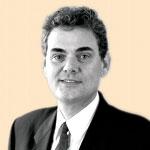|
Stefan Gannon, general counsel of the Hong Kong Monetary Authority, discusses the unique role of the institution’s in-house team.
Asian-Counsel: What do you think the public’s biggest misconceptions are about the functions of the HKMA? AC: What qualities does the HKMA look for in candidates for in-house roles? AC: What would a new legal recruit to the HKMA find most surprising in terms of his role and function in the institution? |
 AC: What is the current composition of the HKMA in-house team? SG: One general counsel, three deputy general counsel, five senior counsel and one counsel. AC: How does the role of HKMA in-house practitioners differ from the role of practitioners at commercial banking institutes? AC: Is there such a thing as a ‘typical day’ for an in-house practitioner at the HKMA? AC: How often does the HKMA seek the advice of external counsel? AC: What will be the main challenges for the HKMA in the coming year, and how will the in-house team play a central role in addressing these issues? AC: What types of innovations does the in-house team see as important for the HKMA in the coming year? AC: How important will innovations like sound Islamic financing policies be to Hong Kong in light of the current global economic climate? |
| IN-HOUSE OPINION: If you are an in-house counsel and you have a comment or an opinion you’d like to share either on this article or its subject matter, contact us at: inhouse@inhousecommunity.com with the article title in the subject line, stating clearly if you wish your comments to remain ‘Private’ or ‘Anonymous’. |

